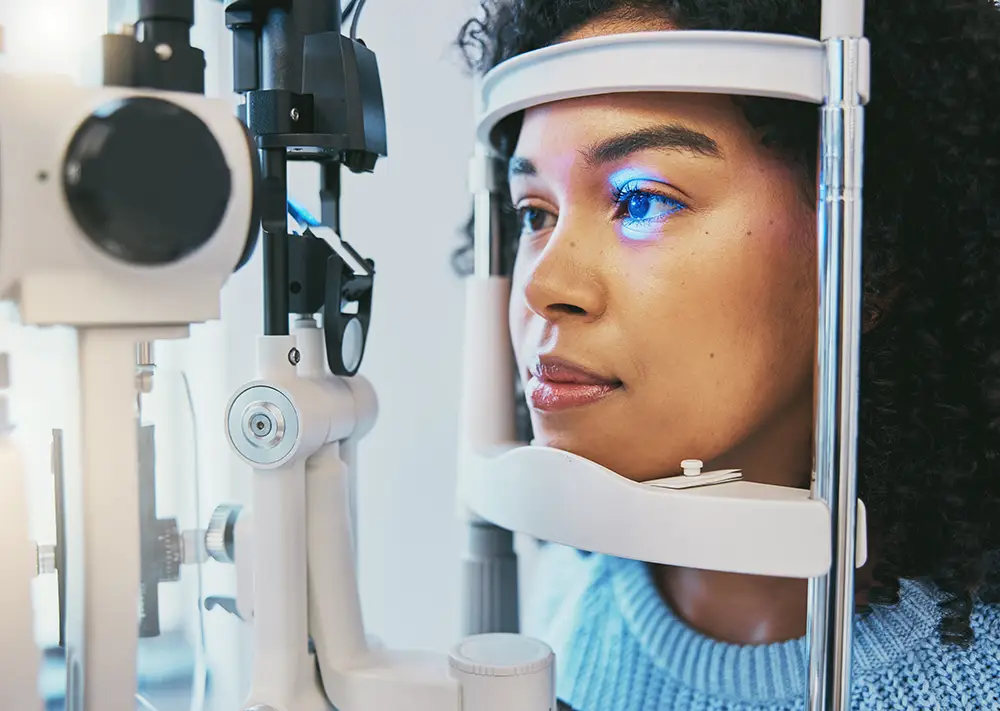Optometry
Optometry is a health care profession concerned with examining, diagnosing, and treating the eyes and related structures, in addition to determining and correcting patients’ vision problems using lenses and other optical aids.

As the primary health care professionals for the eye, optometrists examine, diagnose, treat, and manage diseases, injuries, and disorders of the visual system, the eye, and associated structures, as well as identifying related systemic conditions affecting the eye. They also prescribe medications, low vision rehabilitation, vision therapy, spectacle lenses, and contact lenses, and perform certain surgical procedures. Additionally, optometrists detect and diagnose eye diseases and disorders including glaucoma, cataracts, and diabetic retinopathy. In all fifty states, optometrists are licensed to prescribe medications to treat ocular diseases.
Optometrists are experts in determining one’s refractive error and prescribing the appropriate correction. Optometrists also counsel their patients regarding surgical and non-surgical options that meet their visual needs related to their occupations, avocations, and lifestyles. Like all health care professionals, optometrists refer patients to other practitioners when needed. Referrals are often made to other doctors if signs of diseases like diabetes or hypertension are seen in the eye, or to ophthalmologists for cataract surgery or LASIK.
Prior to admittance into optometry school, students generally complete four years of undergraduate study. After receiving a Bachelor of Science degree, they go on to optometry school, which consists of four years of post-graduate, doctoral level study focusing on the eye, vision, and associated systemic diseases.
In the United States, optometrists receive the Doctor of Optometry degree (OD) upon completion of optometry school. Optometrists must pass a rigorous national examination administered by the National Board of Examiners in Optometry (NBEO). The three-part exam includes basic science, clinical science, and patient care. Some optometrists go on to complete residencies with advanced training in a specific sub-specialty. These specialties can include pediatric care, children’s vision, geriatric care, pre- and post-surgery care, specialty contact lens (for keratoconus patients or other corneal dystrophies) and many others. All optometrists are required to participate in ongoing continuing education courses to stay current on the latest standards of care.
The scope of practice for optometrists is regulated by state laws and has some overlap with that of ophthalmologists.
The pre-health advisors in Arts & Sciences Advising Services stand ready to assist you as you explore your options and begin your preparation for a health profession. To schedule an appointment with a pre-health advisor, go to MyUTK.edu through your Vol Academic Connect (Navigate) or call 865-974-4483 during regular business hours.